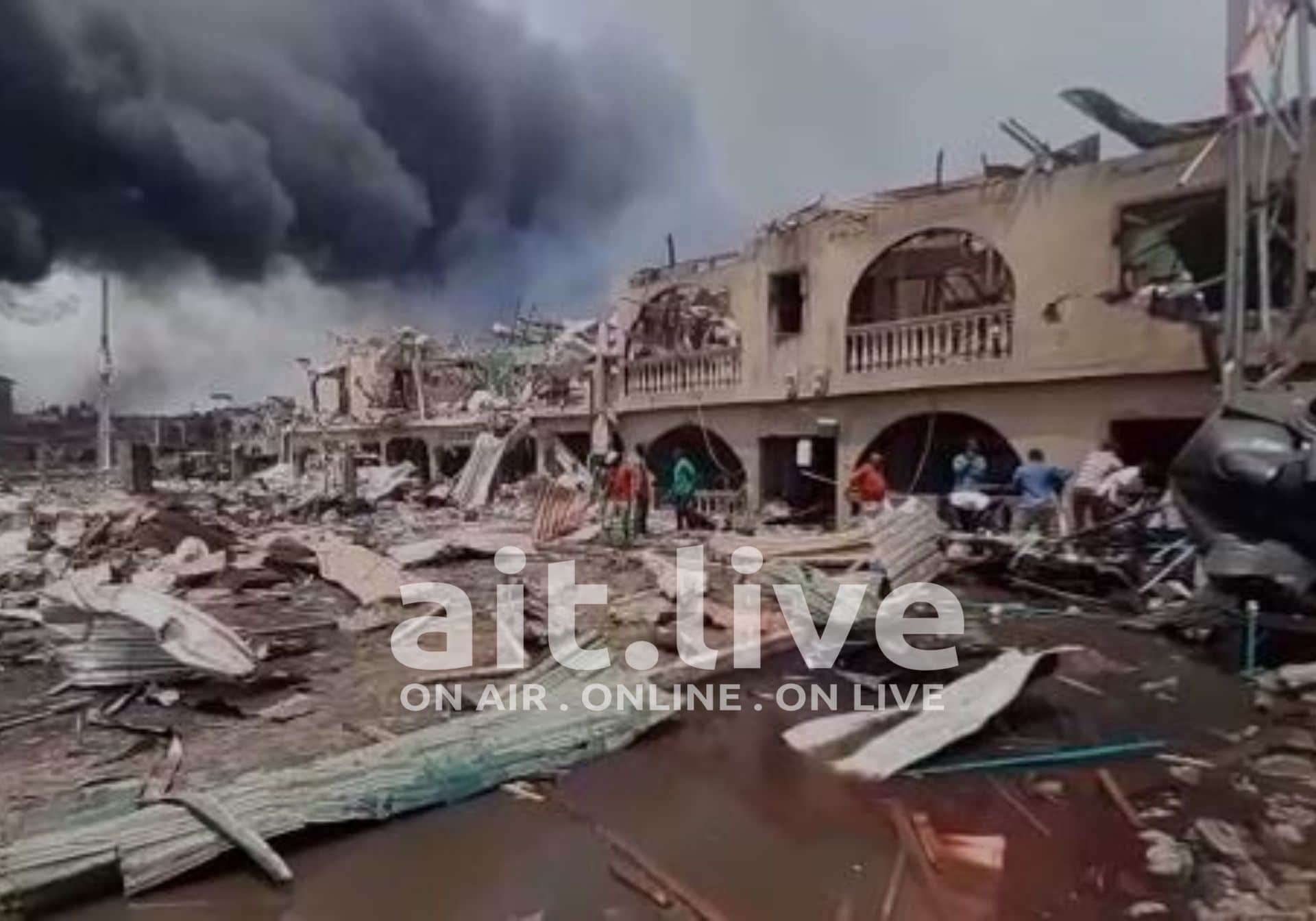No fewer than fifteen people lost their lives with over 100 houses, cars, and buses destroyed during the huge explosion which took place at Omo Onile community of Abule Ado around FECTAC Town in Amuwo Odofin Local Council Development Area of Lagos State.
Early responders at the scene of the incident which occurred on Sunday said they recovered five dead bodies from a Catholic secondary school for girls whose building collapsed during the explosion.
The students were part of the over 300 students in the boarding house.
It was a dark Sunday for the residents of Omo Onile area in Amuwo Odofin LCDA of Lagos State when a driver allegedly tried to turn on the ignition of his faulty truck parked near a burst pipeline which led to the loud explosion that destroyed buildings, cars, and lorries located about two kilometres around the area.
Also Read: Pupils challenge Northern Governors on out-of-school children
The explosion, according to eye witnesses, occured at about 8 am while the over 300 students, all boarders from a nearby girls secondary school, were at their Sunday service.
The loud explosion coupled with the vibration also affected houses in other parts of Lagos.
One of the early responders spoke to AIT on how they recovered the bodies of five female students from the collapsed school building while many others sustained serious injiries.
He expressed fears that many students may still be buried under the rumbles.
Fire service from the nearby stations frantically brought the fire situation under control, as security operatives kept an eagle eye for miscreants who might want to take advantage of the incident to steal.
Also Read: Lagos Assembly sacks 2 principal officers, suspends 2 other members
Some affected residents were busy salvaging what remained from the rumbles.
The scene of the incident at Abule Ado attracted many people who trooped from their Sunday service to witness what they called the worst pipeline explosion ever in the country.
The incident no doubt raised questions about the master plan of Lagos and its implementation by the authorities who allow the development of residential houses along a pipeline that have the right of way.








